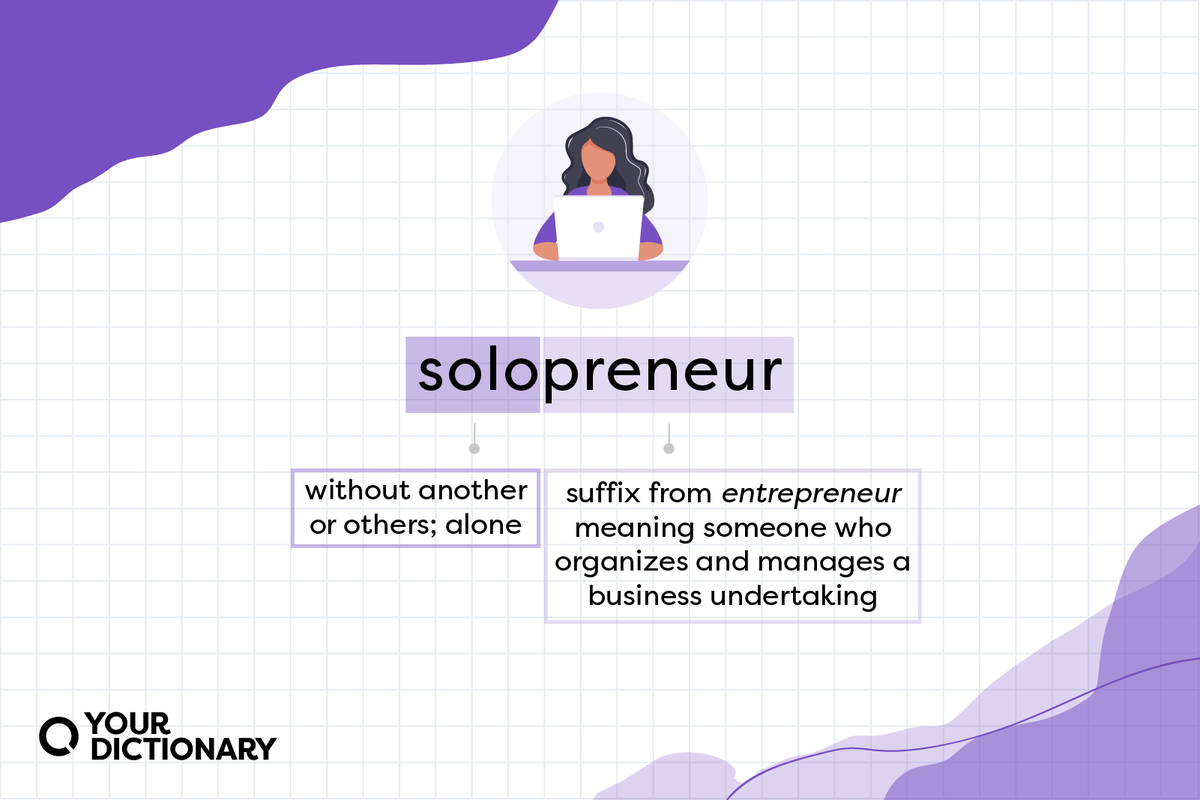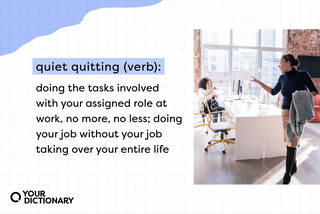
In the age of working from home and the internet, it’s increasingly common for individuals to set out to reach their business goals independently.
That’s why the term solopreneur is becoming more and more popular. These people reap all the benefits of their unique products and services, but they also have to shoulder all the risks and stresses of running a business.
What Is a “Solopreneur”?
A solopreneur is an entrepreneur who runs a business, creates a product, or provides a service on their own.
It’s a combination, or portmanteau, of the term entrepreneur, meaning “a person who takes a business idea and introduces it to the market,” and solo, meaning “alone.”
Those who take risks for their businesses are often very proud when their endeavors pay off, meaning many solopreneurs see this title as a badge of honor or a term of endearment.
Although discussions around solopreneurship have been ongoing since the late ’90s, the early 2000s were a boom period for debate of solopreneurial strategy and possibilities. In the 2010s, some began to see solopreneurship as a viable career path, with mainstream news outlets like the New York Times and Forbes first touching on solopreneurship around this time.
Currently, solopreneur has been popping up again on social media. There are two possible reasons why.
- When the COVID-19 pandemic sent millions of people to work from home, many likely realized that their work could be done remotely, and in some cases independently.
- Solopreneurship may have previously faced the barrier to entry of requiring a storefront or office space, but now many businesses can be run from a home office or even a bedroom.
- Interest in solopreneurship has driven the development of software and tools that give solopreneurs an accessible and affordable way to work in industries that previously required a large team, expert knowledge, or large amounts of funding. The accessibility of websites and online storefronts, as well as tools to design them, has increased dramatically over the last five years.
- Other tools have also increased solopreneurs’ ability to succeed, such as graphic design software that’s available in the cloud, high-quality cameras built into every new smartphone, and advancements in artificial intelligence that speed up productivity online.

What Is Quiet Quitting? About the Hot-Button Workplace Phrase
“Solopreneur” vs. “Entrepreneur”: What’s the Real Difference?
All solopreneurs are entrepreneurs, but not all entrepreneurs are solopreneurs.
Entrepreneurs take on the brunt of the risk of a sellable idea to make a profit. While some will take their idea and run with it, expanding it into a business with multiple employees or business partners, others will continue to pitch, sell, and create their ideas alone, making them solopreneurs.
Solopreneurs might be in fields not open to group work or business partnership or might prefer to work alone rather than with a team.
Fast Fact
Entrepreneur is a French word originally meaning “someone who undertakes risk.” Both entrepreneur and the term enterprise come from the same French word, entreprendre, meaning “to undertake.”
An example of the difference between solopreneurs and entrepreneurs is:
- Solopreneurs have an idea for a product, find out how to produce it, and then open an online store to sell it, fulfilling all orders themselves. (Think Etsy.)
- Entrepreneurs have an idea for a product, find investments to fund its creation, hire teams to create and market the product, and work as the group leader to sell it.
While having a larger team and the ability to mass produce a product or replicate a service may seem more profitable or successful, solopreneurs benefit from not paying workers. Also, they are typically driven by their passion for creating a product or performing a unique service to them.
“Solopreneur” vs. “Creatorpreneur”: What’s the Difference?
A creatorpreneur or creative entrepreneur is someone who specializes in the arts using the solopreneur business model.
While one could argue that all solopreneurs are creatorpreneurs, as they are marketing and developing their ideas which requires creativity, the term creatorpreneur is usually reserved for visual artists, musicians, writers, and other humanities workers and performers.
In the age of social media, some popular influencers can also be called creatorpreneurs. When referring to social media, a creator is a user who creates unique user-generated content that appeals to a specific audience. Because these users use their creativity to build an online brand around their content, they are also creatorpreneurs.
How To Use “Solopreneur” in a Sentence
Even though the term solopreneur has been around for some time, it’s only recently become increasingly popular on social media. Here are some common ways to use solopreneur in a sentence correctly.
- My sister is a solopreneur who runs an online store from her house.
- Those with solopreneurial ideas find it difficult to start, but view their businesses as very rewarding in the long run.
- No one ever told me how to be a successful solopreneur. I just figured it out.
- She has always been solopreneurial, but doesn’t this seem like too much to do for one person?
- The best part of being a solopreneur is that I get to work in my pajamas.
Terms Related To “Solopreneur”
Aside from entrepreneur and creatorpreneur, there are some other related terms that are often used with solopreneur.
freelancer
A freelancer is a person who works for other organizations or individuals but is not under any long-term commitment.
Freelancers will create products, like bespoke artistic creations, or perform services, like writing articles similar to this one, either under contract or as a one-time order for companies and groups.
Not all freelancers are solopreneurs because while all solopreneurs work independently, some freelancers work for organizations under contract and require their supervision and resources for their projects.
travelpreneur
There is slight debate about the meaning of this term. Some define it as "an entrepreneur who works in travel (i.e., those who created Uber, Airbnb, etc.):. Others define it as "a solopreneur who can work remotely while traveling anywhere in the world."
With the power of remote work, solopreneurs like writers, computer scientists, artists, and more can perform the same tasks while traveling (instead of from a headquarters).
socialpreneur
Socialpreneurs are entrepreneurs with an idea to make a new product or service that will also help or explain important social and world issues.
Socialpreneurs typically work to produce businesses that assist with local, global, or online problems impacting specific communities. Many socialpreneurs’ companies are in the nonprofit space, but some can also be for profit.
foodpreneur
Foodpreneurs are solopreneurs or entrepreneurs who set out to market a product or service specifically related to the restaurant or hospitality businesses.
Some examples of foodpreneurs are:
- those who create and open their own food trucks or restaurants
- those who develop new products for use in the kitchen
infopreneur
Infopreneurs are those who run businesses dedicated to the collection and distribution of information.
Sometimes these services aggregate data onto the internet for niche audiences, and other times this involves consulting with businesses in a freelance fashion to distribute institutional knowledge.
self-employed
The term self-employed is a catchall for anyone who owns their own business or does not report to a supervisor.
Solopreneurs, freelancers, and creatorpreneurs are all types of self-employment because these people work for themselves rather than supervisors or managers.
Even freelancers who work under contract are considered self-employed because they are not direct employees of a company.